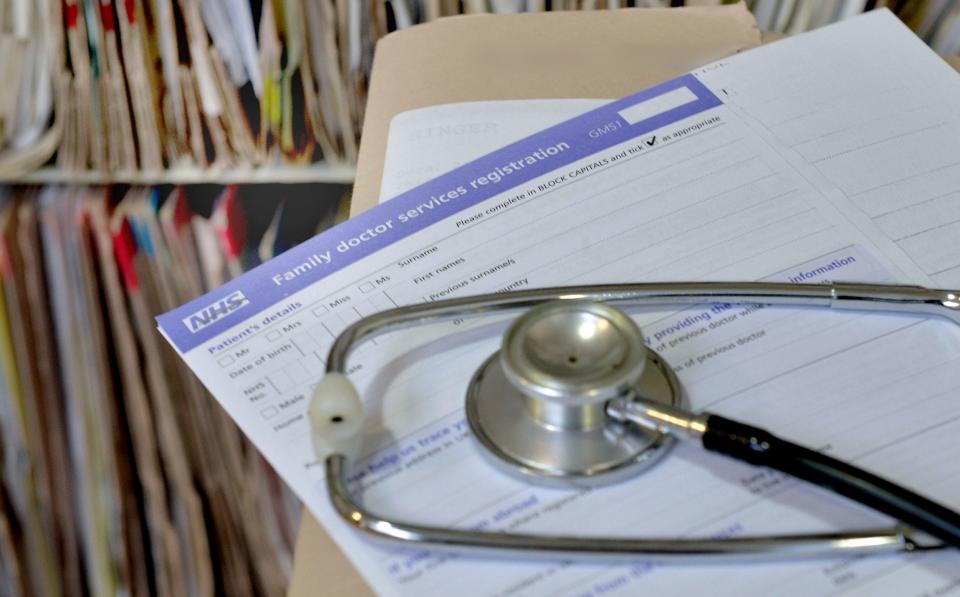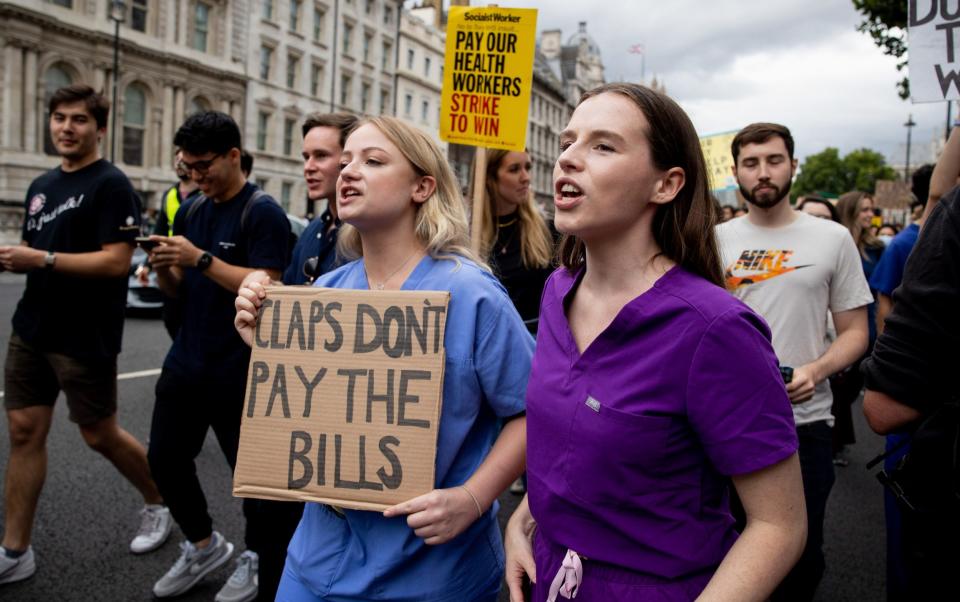GPs vote to ballot for strike action

GPs have voted to ballot for strike action after union leaders urged them to be prepared to take a collective stance.
The closed door-meeting came at a conference where the head of the British Medical Association (BMA) GP committee said family doctors must be prepared to take “collective action”.
During open sessions, Dr Kieran Sharrock urged activists across the country to “build support” for such measures.
It has now emerged that, during private meetings, members of local medical committees (LMCs) – which represent GPs across the country – were polled on their appetite for industrial action.
Earlier this year, BMA members threatened to take industrial action in protest at the existing GP contract, which was imposed and requires some surgeries to open on Saturdays. However, that threat has yet to translate into a ballot.
Pulse magazine reported that a private vote of LMCs last month asked GPs whether they would support industrial or collective action if the Government failed to agree to a “meaningful” contract for the next two years. The magazine said the majority voted in favour.
In his opening speech at the conference, Dr Sharrock said GPs must be prepared to back industrial action if needed.
“If we cannot agree with the Government a contract that delivers, then we must be prepared to take collective action to protect the bedrock of the NHS, which is general practice,” he said.
“We need activists in every LMC who can build support and understanding of industrial action, so we can turn back on the light at the end of the tunnel.”
It is understood that the private poll does not form official policy of the BMA’s GPC, but was an attempt to “gauge sentiment” on future action.
The committee already has a mandate to “immediately escalate discussions” with the central BMA council over collective or industrial action after it passed a motion in July protesting at their pay award.
The motion passed unanimously, with “a view to potential collective/industrial action on behalf of all GPs across England” in rejection of the “derisory and divisive pay award for 2022/23 announced by the Government”.
Salaried GPs will receive a 4.5 per cent pay rise. However, the majority of GPs are partners, with average annual earnings of £142,000 in the most recent published figures, with a 17 per cent rise during the first year of the pandemic.
Much of GP income depends on performance against a range of tasks, with payment automatically made during 2020/21 despite targets being suspended. A five-year agreement provides for a 2.1 per cent pay uplift for all GPs, practice staff and practice expenses.
A ballot of the BMA’s junior doctor members on industrial action over pay is due to go ahead in early January.

On Thursday, Dr Sharrock said: “GPs and their teams are working under immense and growing pressures, which is why it’s essential that the Government works with us to negotiate a safe and meaningful contract for 2023/4.
“General practice cannot continue on its current trajectory, and while no GP wants to have to take any kind of action it would be naive of Government to think that this is an impossibility as pressures on our services grow without the support to alleviate them.
“There were a wide range of views expressed during this year’s conference, and we will use discussions and feedback from both days to help inform our work going forward.”
A BMA spokesman said: “LMC representatives were polled on a number of statements to help gauge sentiment on several issues raised throughout conference.
“These were not binary or binding votes, and the statements do not form conference policy nor BMA GPC England policy. Any decisions around a formal ballot for industrial action would need to be one for the BMA following strict protocols. This was not a BMA conference.”
A Department of Health and Social Care spokesman said: “Industrial action is a matter for unions, and we urge them to carefully consider the potential impacts on patients.”
On Thursday, Wes Streeting, the shadow health secretary, said a Labour government would open pay discussions with nurses and paramedics.
He said the current pay demands being made by nurses were not affordable, but added that “we would be willing to talk and negotiate, and I think that is the least the government should do”.

 Yahoo Movies
Yahoo Movies 